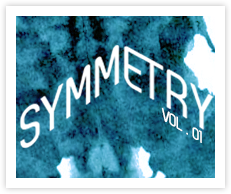

McLuhan: Information as a Verb
Kelly Lynch // November 21, 2011

Few Canadians are unfamiliar with the name Marshall McLuhan. If not through popular culture like the Canadian Heritage Minutes, then through his very quotable “the medium is the message”. However, you may not know that McLuhan was, well, a bit eccentric. He was considered in academic circles to be somewhat of a “rebel”, a non-conformist Joyce scholar with a fondness for the contentious and the abstract. Whether it was the influence of Joyce’s incoherence, or McLuhan’s somewhat overwhelming desire to be on a (very) public stage, the scholar’s time in the limelight was a brief decade between 1961 and 1970.
Yet, McLuhan robustly and blusteringly upheld the value of mass communication and its immanence worldwide long before it happened. McLuhan knew that the way in which a society communicates is inseparably linked to its development and growth. He knew that the way technology was heading would very soon define the western world. If not the purely academic spokesperson for this idea, McLuhan was at the very least the main press agent for it (Fishman, 2006).
The era we live in now, 31 years after McLuhan’s death, truly is the Age of Information. Marshall McLuhan “called it”, ladies and gentlemen. Not only did he call it, he successfully achieved shot-gun, and will forever ride in the front seat because of it. Despite his critics, I do believe we can safely say this is a cushy position to be in, post-mortem.
So, who was Marshall McLuhan?
He was a man passionate about communications, and he was a pioneer. The problem with being a pioneer is that usually you’re the person that strides into the brave new world and ends up being mostly wrong. However, McLuhan’s salience lies in what he did figure out, not what he didn’t. In Canada at least, public opinion does not hold that McLuhan was stuck in the clouds with half-formed, slightly inarticulate scholarly theories about communication. He came up with “the medium is the message”. McLuhan understood (and was able to turn into a catchy, media-ready turn of phrase) the idea that information is a verb. Darin Barney, a favourite communication scholar of mine, breaks it down: “the English word ‘information’ is derived from the Old French verb enformer, which meant to form or, more specifically, to give shape to, or to fashion”…”Information, in the current context, is more than organized data, more than an item of knowledge, and more than a thing that is told. It is, crucially, a telling that shapes or forms. Consequently, it becomes important to investigate not only that which is told, but also the impact, manner, and medium of its telling” (2000).
If we’re still talking about it in the last decade, I think we can safely say McLuhan made quite a bit of headway as a communications pioneer.
Today is the 100th anniversary of Mr. McLuhan’s birth. Take a few minutes and think about your future career, or your current career, as a communications professional. Think about information as a verb. What we do is an action, and it shapes perspectives and public opinion. It is a gift to be a communicator, and not something to be taken lightly–though we do have fun. I have yet to meet a communications professional, prospective or otherwise, that does not enjoy a challenge. Marshall McLuhan gave us some very important tools we need to be good communicators. He gave us a clearer understanding of the power we wield as practitioners in the communications field and how the methods we use affect our message. In this way, Marshall McLuhan will always influence our profession.
Thanks, Marshall. And happy centennial, old chap.
_______________________________________________________________________
References
Barney, D. (2000) Prometheus Wired. Toronto: UBC Press.
Fishman, D.A. (2006). Rethinking Marshall McLuhan: Reflections on a media theorist. Journal of Broadcasting & Electronic Media (50)3.
